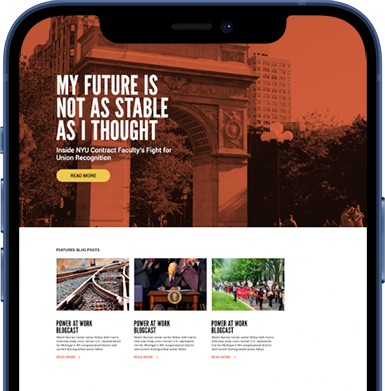The latest release from the Bureau of Labor Statistics reports that the median weekly earnings of America's full-time wage and salary workers rose by 6.1% over the course of the last year. That's faster growth than we have seen in the Consumer Price Index, one important inflation measure. The CPI rose by 5.8% over the last year. This headline real earnings result is consistent with other recent BLS data releases showing that workers' bargaining power in the labor market is producing real wage gains as elevated inflation returns to more sustainable and traditional levels.
Tight labor markets and meaningful worker power alone will not be enough to address these disparities. By contrast, other BLS data show that organizing unions does help.
Rising real earnings and sustained worker power in labor markets have not solved the persistent problem of sex and race earnings disparities in the American economy. Women's median weekly earnings were only 84% of men's earnings. Black and Hispanic workers earned less than their White and Asian counterparts. Black and Hispanic men, in particular, earned roughly one-quarter less than White men. The differential between Black and Hispanic women's earnings and white women's earnings was somewhat less, but it was still 14% and 22% respectively. Tight labor markets and meaningful worker power alone will not be enough to address these disparities. By contrast, other BLS data show that organizing unions does help.
Educational attainment also produced huge disparities in median weekly earnings. Full-time workers age 25 and over who do not have a high school diploma had median weekly earnings of $682 while high school graduates without any college education earned $884 per week --- a 23% gap. As a point of reference, the federal poverty threshold for a family of 4 is around $30,000. The median annual earnings of an adult, full-time, full-year worker without a college degree is around $35,000.
All those arguing that attending college is no longer worth the expense or effort need to explain away that huge annual college premium, even in the face of often indefensibly large tuition bills.
Workers with at least a bachelor's degree earned nearly double the weekly earnings of high school graduates at $1,621. The high school/bachelor's degree gap amounts to more than $38,000 for full-time, full-year workers. All those arguing that attending college is no longer worth the expense or effort need to explain away that huge annual college premium, even in the face of often indefensibly large tuition bills.
Each of these data points --- inflation and real earnings, workers' power in labor markets, sex and race earnings disparities, and educational attainment disparities (including college access issues) --- illustrate critical divisions in our country that public policy could and should redress. This is where our political and economic discourse should be focused.

